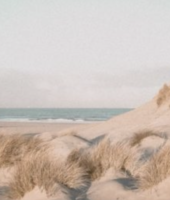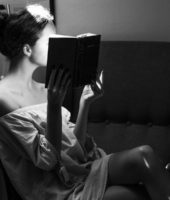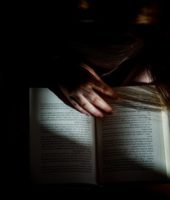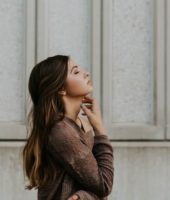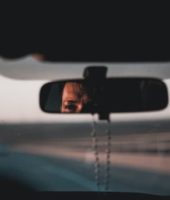Every time you do not follow your inner guidance, you feel a loss of energy, loss of power, a sense of spiritual deadness. — Shakti Gawain
There is a very interesting reflection that Osho made in his book “fame, fortune and ambition” that goes like this: People always think < the neighbor chicken its better than mine> But they are all wrong, they are distracted.
I think this is the right way to start this piece, to show how comparison works in our daily lives; we are not mindful about our lives so we believe that everything that is distant or everything that we don’t know profoundly is better.
We often follow in directions that nature did not reserve for us. We are not moving to our own potential, we are trying to be what others are or what others want us to be.
Measuring the self against others is a modus operandi of the human mind; comparisons can be very harmful especially when they leave us feeling chronically inferior or depressed.
Social comparison theory was first put forth in 1954 by psychologist Leon Festinger, who hypothesized that we make comparisons as a way of evaluating ourselves. A key element of the brains social cognition network that can be traced to the evolutionary need to protect oneself and assess threats.
Comparisons we feel most acutely relate to domains we value, for example in art can be technique, color scheme, composition, artistic fame, recognition etc.
Comparison is a fundamental human impulse, there is really no way of shutting down completely However, if we understand its origins, mechanisms and what to watch for we are able to mitigate the negative effects.
As artists is very easy to look at what other artists are doing and comparing their brilliance to our efforts.
I remember I used to scroll on Instagram to see how other artists painted and felt frustrated because in my eyes they were more creative, acknowledged, had better technique, better composition or color scheme; but the behavior I had was toxic for myself and my creativity. Comparison impedes our progress and automatically we lose the energy to focus on our own art.
The comparison was triggered by my fear of not being acknowledged and not being valued, I was afraid that my art was not good enough.
There is a quote that I love much from William Hazlitt that says:
just as much we see in others, we have in ourselves.”
This is a profound quote and sometimes we forget that the brilliance we see in others or crave, we have it in our own way.
Comparison creates artist block, because of the constant devaluing of our efforts to create art, we shame our self’s, and shame is a controlling device and makes us feel wrong to create.
I believe that every individual must be anchored to their own potential, whatever it may be, nobody has to give us specific directions, it is important to learn to trust our inner guidance and make mistakes in the process.
Recovering a sense of strength – Gaining strength and trust
Make your recovery the first priority in your life. — Robin Norwood
I felt a loss of hope and self believe, and jealousy would kick in constantly, with so many artists on social media was very common to see their work and lifestyle and desire the same for myself.
Jealousy or comparison provides tunnel vision. It narrows our ability to see things in perspective. Jealousy was a mask for fear, the fear of being myself, fear of failure, and the fear of leading with courage, confidence on my own artistic path.
The breaking point arrived when I felt tired of being angry and drained constantly, tired of the comparisons I was making, tired of fearing my true artistic voice so I decided to win my own autonomy.
It was so hard and painful to be blocked, I preferred to go inside, connect to my inner being and accept all of me.
The possibility of not being perfect, the fear of not being good enough, the fear of failure and making art that I really loved, scared me but sooner or later I had to understand that to live a creative life, we must lose our fear of being wrong.
The need to be a great artist makes it hard to be an artist, because the perfectionist ego comes out and starts to block us instead of promoting energy to create.
Compare yourself to yourself
People, who are happy, use themselves for internal evaluation. — Sonja Yubernisky
A Happy runner compares his self to his last run, not those who are faster… This became my motto, focused on my improvement I started to draw more the things I liked, yes, I bought books to learn techniques and implement my creativity with courage. Doing something, creative everyday resulted in a beautiful collection of my own original and authentic material.
As Astrid and Irene from flow magazine said: “the most important lesson learned about creativity or making art is that is not the result that counts”. It is the moment you create that counts.
A strategy that I use to compare myself to myself is drawing and painting every day and make a good pile of work and after one month, I celebrate my accomplishment of being consistent, and then I start by making a list of the things I improved and what I need to give more effort. I analyze my strongest points and start scheduling days to work on my weaknesses.
For me, this is the best strategy to keep me motivated and interested on my process rather than comparing myself to other artists, which is counter- productive.
In life, we will find amazing art and artists; it is inevitable, but it is crucial to be focused on our own process. Yes, is good to praise or find beauty in what others do (but we do not have to put ourselves down when we see beautiful work from other people) but is also important to focus on ourselves knowing that we are capable of creating beautiful and meaningful art. When we are ogling the accomplishments of others, we take our eye away from our own through line.
A good antidote form the toxic need of constantly comparing is questioning. When we ask ourselves the right questions, those right questions give us the right answers. What do I need? Why am I feeling this way? Am I feeling invisible or not acknowledged? What can I do to better my art? What can I do to make my art visible? Do I need to market more my art? What technique I want to explore? What is necessary next? Have I done any work on its behalf?
These types of questions shift our focus from being busy with things out of our control. Things like other people talent, fame or art technique; Its crucial to create a tight bubble of total focus, our own chapel cysteine of focus, an addiction to this type of distractions (yes, comparing is a distraction), is the death of our creative production.

